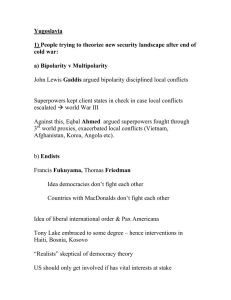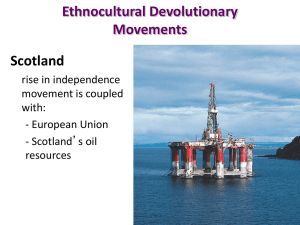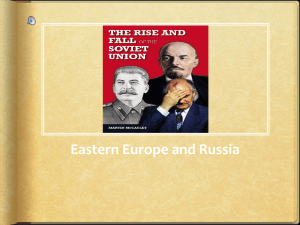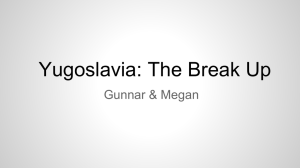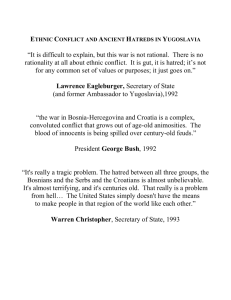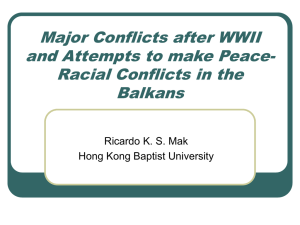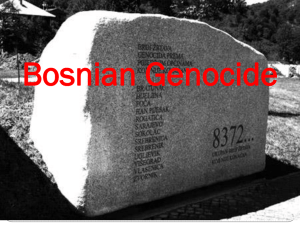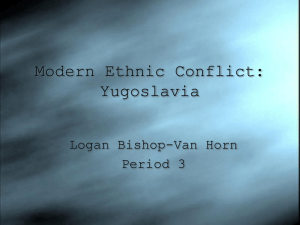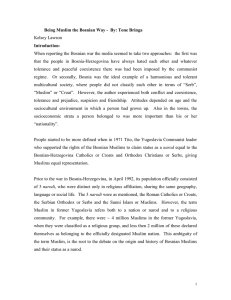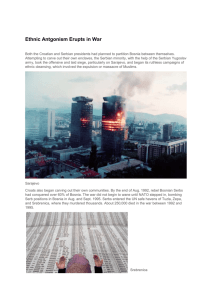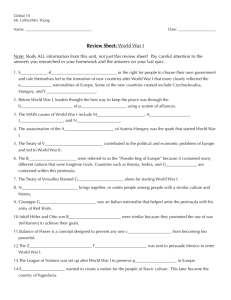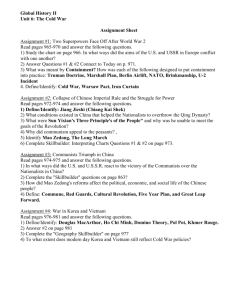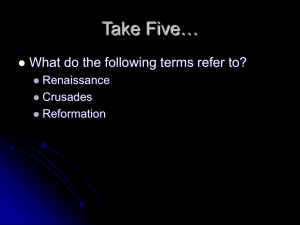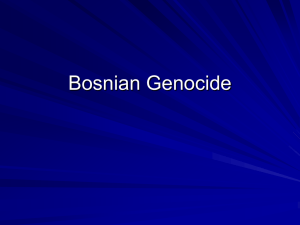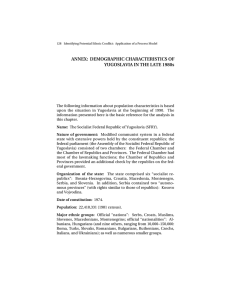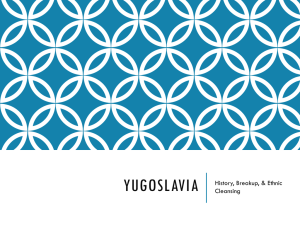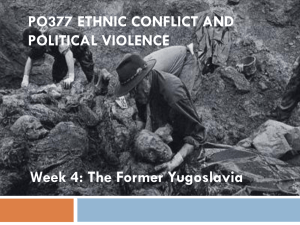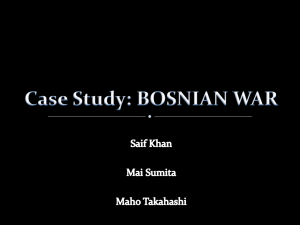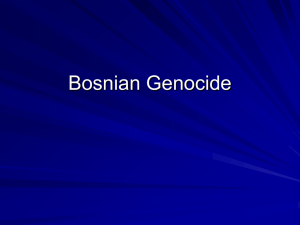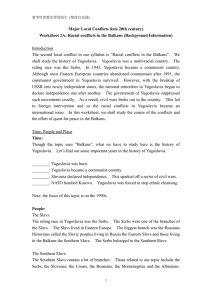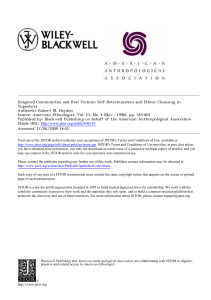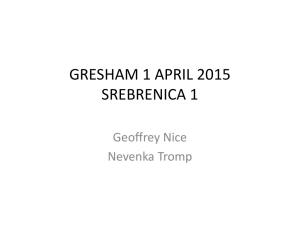Content Objective
advertisement
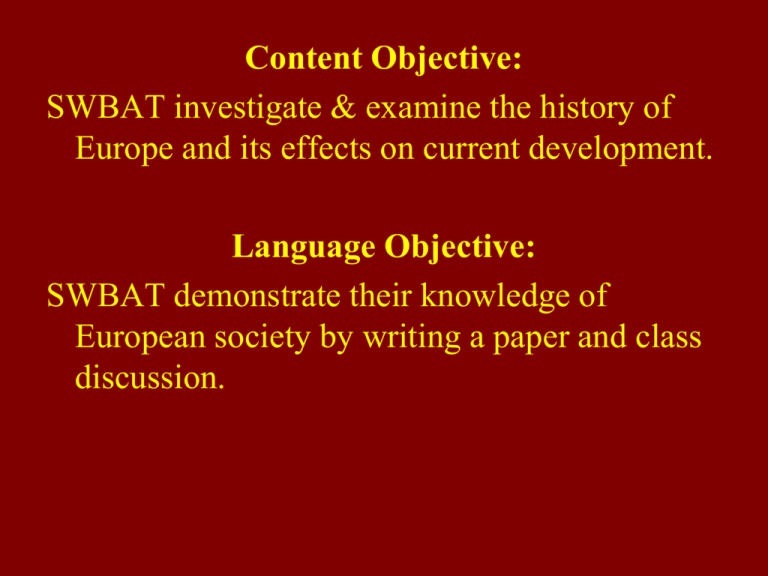
Content Objective: SWBAT investigate & examine the history of Europe and its effects on current development. Language Objective: SWBAT demonstrate their knowledge of European society by writing a paper and class discussion. Eastern Europe Physical 1. Territorially it is Europe's largest region, with a total of 18 countries. 2. Extends from the Baltic Sea in the north, to the Black and Adriatic Seas to the south. 3. It has little coastal access, though – significant? 4. Lowlands to the north which are good for agriculture; hills and mountains in the south Population 1. 190 million people. 2. Most live in urban-industrial areas near Czech and Slovak Republics and southern Poland. 3. The population growth is zero to negative – problems? 4. The second-largest religion in Europe is Islam, followed by Judaism. 5. Europe has the largest number of nonreligious and atheists in the Western world. Other 1. Geographers call this region a shatter belt – a zone of persistent splintering and fracturing. 2. Balkanization – the process of fragmentation or division of a region into smaller regions that are often hostile or non-cooperative with each other. a. Refers to many small ethnic groups found in the Balkan Peninsula. 3. Movement – Poland and the Czech Republic have large amounts of coal and iron a. Grain production – wheat Countries 1. Romania is the ultimate tragedy of Soviet-dominated Eastern Europe a. A communist dictator squandered Romania's wealth, b. Destroyed much of the countries architecture c. The dictator encouraged all women to have five children d. Home of Count Dracula? Countries, cont. 2. Czech Republic is the most Westernized country; about the size of New York 3. Serbia is an example of Balkanization a. Slovenia, Croatia, Bosnia, Serbia, Montenegro, and Macedonia were Yugoslavia 4. Bosnia – 49% Muslim, 31% Serbs and 17% Croats – conflict? 5. Slovenia was the first to secede from Yugoslavia on June 25, 1991 Soviet Control 1. After WWII, the Soviet Union came to dominate E. Europe - buffer zone. 2. The boundary became known as the Iron Curtain. 3. Natural resources of Romania, Bulgaria, Hungary, etc. were drained for Soviet benefit. 4. In 1989, E. Europe was successful in establishing their own ind. government. Czechoslovakia 1. Gains independence from Soviet control in 1989 2. In 1993, Czechoslovakia peacefully divided into the Czech Rep. & Slovakia – Velvet Revolution Break Up of Yugoslavia 1. Yugoslavia was created after WWI mainly by the US, GB, and French. 2. It combines lands populated by several Slavic groups. 3. The main Slavic groups are Serbs, Croats, Bosnians, and Slovenians. 4. Serbs and Croats think of themselves as separate peoples. 5. Croats and Slovenians are Roman Catholic. 6. Serbs and Macedonians are Eastern Orthodox. 7. Most people in Bosnia are Muslim. Break Up of Yugoslavia, cont. 8. Civil war broke out in Bosnia between Serbs (Orthodox), Croats (Catholic), and Bosnians (Muslim). 9. Serbs began “ethnic cleansing”, 300K people died 10. Peace treaty is signed in 1995 by Bosnia, Croatia, and Serbia (Yugoslavia) 11. 1998 - Serbs attack Kosovo led by Slobodan Milosevic 12. 1999 - US/NATO air strikes finally end conflict Srebrenica Massacre 1. July 1995 – 8,000 Bosnian men & boys killed 2. 25,000 refugees killed by Serbian Army 3. Considered U.N. safe zone – 400 Dutch peacekeepers 4. Radovan Karadžić – most wanted man in the world captured July 2008 Issues • • • • • • • • Conflict in Northern Ireland Ethnic Cleansing in the former Yugoslavia The Basque region of Spain The velvet revolution of Czechoslovakia Fleming’s vs. Walloon’s in Belgium Pollution situation in Eastern Europe Writing a constitution for the European Union Zero or negative population growth and its effects in Europe Content Objective: SWBAT investigate & examine the history of Europe and its effects on current development. Language Objective: SWBAT demonstrate their knowledge of European society by writing a paper and class discussion.
